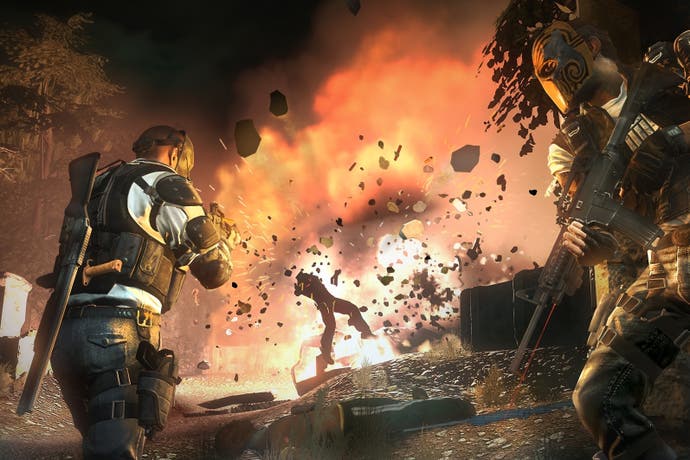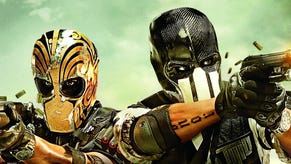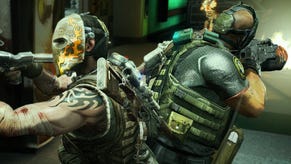Army of Two dev: we forget games are meant to be fun
"We still as gamers need to be able to appreciate a Michael Bay-esque type of experience."
In the age of incredible realistic graphics and hardcore mechanics, we have forgotten that games are meant to be fun.
That's the analysis of one person behind the Army of Two franchise - a series known for its over-the-top gameplay.
Producer and designer Greg Rizzer told Eurogamer that Visceral Games' Montreal, Canada division insisted it retain Army of Two's trademark arcade gameplay for the third game in the series, called Devil's Cartel, despite criticism from some quarters for "frat-boy-esque tone". In short: don't take it too seriously.
"Especially in the market today where every shooter is claiming to be the most realistic, one of the things that's starting to slip away is games are meant to be fun," Rizzer said.
"Even if it's a game that's violent in content, we still as gamers need to be able to appreciate a Michael Bay-esque type of experience. And using all this new technology we have, why not?
"When everyone is asking, how do you stand out from another game? Well, I think it's pretty apparent how we stand out from another game.
"Yeah, we're going to score you based on how you cooperate, and you're going to earn something called Overkill, which is going to trigger Beast Mode. To me that's just a very simple video game loop and something that fits well within the Army of Two franchise.
"I'm happy about it to be honest with you. At least we'll be able to stand out in the market."
He added: "The previous Army of Two games had a real frat-boy-esque tone to them. We've kind of reeled that in a little bit, but we certainly wanted to still be over-the-top."
Like previous games in the series, Devil's Cartel revolves around two-player co-op. This one is set in Mexico, and sees you blow up a criminal organisation one explosive round after another.
Rizzer said Army of Two is designed to rekindle memories of playing arcade games in our youth with "old school" mechanics and action.
"To me, when you look at video games and you see the reaction of people who are playing it and are like, 'whoa!', that's the reaction you're supposed to get from when you were a kid and used to go to the arcade and see the first boss battle after playing Ghouls 'n Ghost or whatever," he said.
"That's the thing video games, I feel, need to get back to: pick up the controller, be able to play and not have to know a million different things and just have really cool things happen on the screen.
"So in that sense it is old school."
Rizzer singled out Army of Two's easy-going co-operative play, what he calls "co-opetition", as an antidote to the often intimidating, depressing environment of online competitive multiplayer. This, he said, was the series' most compelling hook - and was still relevant despite many games offering co-op play.
"I've never been a competitive game player myself," he said. "I always play a game solo or cooperatively. We're in a game industry right now where everybody wants to be the biggest trash-talker. I feel it's taking away from the spirit from gaming.
"It's important for us to know the industry and be in touch with what people are buying, but it's also important for us to know there are people out there who continue to want to play games with their mates and not feel like, 'oh my god!'" he said.
"I'll never forget the first time I played competitive Gears of War. After half-an-hour I had to turn it off because I was tired of these little kids talking about my mom and saying awful things. I was like, ' I don't even know you! Why are you saying these terrible things about my mother?'
"We're good at what we do. We know what works for us and we're just going to continue to deliver on that."





